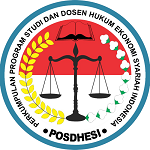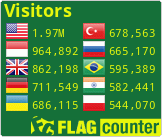Exploration of Maqasid Al-Shariah Concepts in The Development of Islamic Economic Policies
DOI:
https://doi.org/10.32332/muamalah.v2i2.7747Keywords:
Islamic Economics, Policy Development, Maqasid Al-ShariahAbstract
This study examines the concept of maqasid al-shariah in the context of Islamic economic policy development, emphasizing its understanding, implementation in policy, and evaluation of its impact on society and welfare. The research employs a literature review method, conducting a comprehensive analysis of relevant sources across various disciplines. The findings indicate that maqasid al-shariah serves as a moral compass within Islamic economics, providing a foundation for a just, sustainable, and ethical economy. Its implementation requires the establishment of robust Islamic financial institutions, the regulation of economic activities in accordance with Islamic law, and the preservation of moral values in business practices. The evaluation of its impact underscores the significant role of Islamic economics in safeguarding the core objectives of protecting religion, property, life, intellect, and lineage. This study highlights the ongoing relevance of maqasid al-shariah as a guiding framework for Islamic economic policies, offering a bridge between theoretical principles and practical applications to foster a more just and ethical society.
Downloads
Downloads
Published
Issue
Section
License
Copyright (c) 2023 Suud Sarim Karimullah

This work is licensed under a Creative Commons Attribution-ShareAlike 4.0 International License.
All articles in the Mu'amalah: Jurnal Hukum Ekonomi Syariah can be disseminated on condition that they still include the identity of the article and the source (Mu'amalah). The publisher is not responsible for the contents of the article. The content of the article is the sole responsibility of the author.
Authors who publish this subject agree to the following terms:
First, the Authors retain copyright and grant the journal rights from the first publication with the work simultaneously licensed under a Creative Commons Attribution-ShareAlike 4.0 International License that allows others to share the work with an acknowledgement of the work's authorship and initial publication in this journal.
Secondly, the authors can enter into a separate or an acknowledgement of its initial (e.g., post-institutional repository or publish it in a book) publication in this journal.
![]()
Third, the authors are permitted and encouraged to post their work online (e.g., in institutional repositories or on their website) before publishing work is cited.








